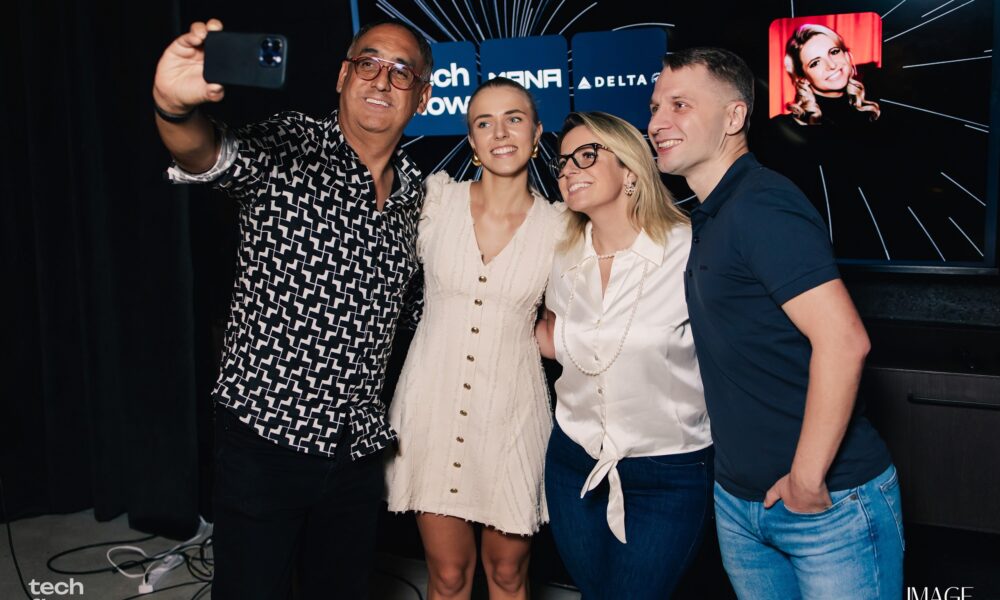Building Bridges: How Nikolai Strakh is Redefining Professional Networking in Tech

The founder of the largest Russian-speaking startup community in the U.S. discusses uniting global talent, celebrating cultural roots, and advancing entrepreneurial innovation.
The Russian-speaking community in the U.S. significantly enriches society through social diversity and economic contributions. Known for their high education and skills, members excel in STEM fields and establish businesses across technology, healthcare, and legal services, creating jobs, stimulating local economies, and boosting tax revenues. However, Russian-speaking entrepreneurs face challenges such as language barriers, cultural differences, and funding difficulties, which complicate securing investments, integrating into business networks, and navigating legal complexities. Despite these obstacles, they continue to drive innovation and enhance the startup ecosystem.
To help them overcome the obstacles and greatly impact the US economy, there is a big Russian-speaking community headed by Nikolai Strakh, founder of Advanta Digital LLC and Tech Flow. He aims to bring together Russian-speaking tech startuppers and provide them with the necessary mentorship and insights. His initiatives — spanning 20 successful events in 4 states and a thriving community of more than 550 participants from 15 countries and diverse tech backgrounds — demonstrate how strategic community-building can propel both personal and professional growth.
We asked Nikolai to discuss the transformative power of professional communities, how they fuel innovation, and what it takes to create environments where ideas flourish.
Nikolai, Tech Flow is now recognized as the largest Russian-speaking tech community in the U.S. What inspired you to create this initiative, and what has been its most significant impact so far?
The inspiration for Tech Flow came from my own experience as a Russian-speaking professional trying to establish credibility and connections in the U.S. market. Many of us face obstacles, including a lack of networks, social ties, and initial trust. I saw an opportunity to build a platform where individuals could support one another, share resources, and collectively demonstrate our contributions to the American economy.
The most significant impact has been fostering a sense of trust and collaboration within our community. We’ve connected experts, hosted events that draw government representatives, and helped showcase our skills and potential in ways that were previously overlooked.
With Tech Flow hosting 20 events across four states and engaging more than 550 participants, what strategies have you employed to ensure these gatherings go beyond simple networking and create real value for attendees?
The key is intentionality. Each event is designed around a clear theme or challenge, ensuring that discussions are focused and productive. We invite expert speakers to share actionable insights and encourage attendees to actively participate in workshops or problem-solving sessions.
We also follow up with participants after events, helping them stay connected and turn the initial interaction into lasting professional relationships. This proactive approach ensures that the value extends far beyond the event itself.
Community-building has become a key driver for engagement, playing a great role in building a startup in a foreign country. How do you see professional communities contributing to innovation and success in tech?
Such communities create spaces where individuals from diverse backgrounds can exchange ideas, share resources, and collaborate on groundbreaking projects. In the tech industry, these interactions often lead to solutions that no single individual could develop in isolation. For example, we regularly host events that spark collaboration and knowledge-sharing. For instance, at “Tech Flow Miami,” Natalia Brzezinski shared insights on business leadership and Klarna’s success in the U.S. This inspired members and provided actionable strategies for scaling startups and addressing market challenges. These interactions demonstrate how professional communities can accelerate growth and drive innovation in ways that traditional networking alone cannot achieve.
Through Tech Flow, we’ve seen participants grow their networks and launch collaborative projects and startups. It proves that professional communities are a catalyst for innovation and tangible success.
Your events feature other prominent industry experts, such as Olga Lykova of monday.com, who shared insights on building revenue-driving partner programs. How does their expertise impact the participants?
Featuring industry experts like Olga Lykova ensures that our events offer participants unparalleled access to proven strategies from leaders in their fields. Olga’s session, for example, provided actionable frameworks for designing and executing partner programs, drawn directly from her success at monday.com. This not only inspires attendees but also equips them with practical knowledge that can be applied immediately to their businesses. The credibility and real-world experience of our speakers add immense value, helping participants navigate complex challenges with greater confidence.
Tech Flow also includes dynamic formats like Maksim Talkachou’s discussion on blogging as a revenue stream. What is the purpose behind incorporating interactive and practical activities, and how do these formats enhance the experience for attendees?
Interactive activities, such as Maksim Talkachou’s session on leveraging personal branding for revenue, are designed to deepen engagement and facilitate learning through direct application. These formats encourage participants to move beyond theory by connecting insights to their own professional contexts. Whether through workshops, breakout discussions, or Q&A sessions, attendees actively collaborate and explore solutions, ensuring they leave with actionable takeaways. This hands-on approach transforms our events into practical growth opportunities, making them memorable and impactful.
Building trust and credibility for the Russian-speaking tech community in the U.S. is no small feat. What were the biggest challenges you faced, and how did you overcome them?
One of the biggest challenges was overcoming stereotypes and the lack of initial credibility. Russian-speaking professionals are often seen through a narrow lens, which makes it harder to gain trust in the U.S. market.
To address this, we made our mission very clear: to demonstrate tangible contributions to the American economy. By organizing high-quality events, inviting renowned experts, and fostering a culture of openness and professionalism, we gradually earned the trust of our participants and external stakeholders.
What’s next for Tech Flow? How do you see its role evolving in the professional ecosystem landscape?
We’re planning to expand our reach by partnering with educational institutions and corporate sponsors to create mentorship programs and knowledge-sharing initiatives.
Additionally, we’re exploring hybrid event models to make our gatherings accessible to a global audience while maintaining the intimacy and trust of in-person interactions.
Our ultimate goal is to establish Tech Flow as a blueprint for professional ecosystems that drive innovation, collaboration, and personal growth across industries.
Many businesses aim to harness the power of communities for growth. What advice would you give to companies looking to create their ecosystems?
First, start with a clear mission. Why does your community exist, and what unique value does it offer? Without this clarity, it’s hard to attract and retain engaged members.
Second, invest in moderation and leadership. A strong, proactive team is essential to guide discussions, resolve conflicts, and ensure that the community remains focused and inclusive.
Finally, prioritize value over volume. It’s better to have a smaller group of highly engaged members than a large but inactive audience.





